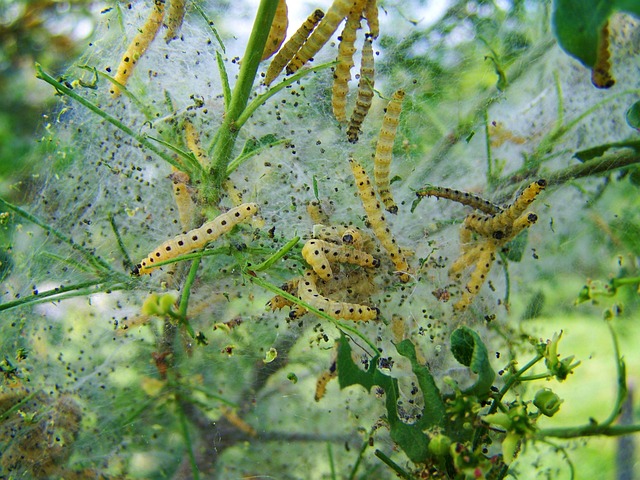In today's competitive business environment, maintaining a pest-free space is vital. Professional commercial pest control services offer tailored solutions like termite control for offices, rodent removal, and bed bug/ant extermination using eco-friendly methods. Regular inspections, proactive maintenance programs, and early detection are key to preventing costly infestations, ensuring a safe work environment, and safeguarding business reputation. These long-term strategies help achieve sustainable pest management, enhancing operational efficiency.
In the realm of commercial pest control services, proactive maintenance is key to ensuring a thriving business environment. This article delves into the critical importance of regular pest maintenance for businesses, exploring effective strategies that go beyond reactive treatments. From addressing common pests like rodents and bed bugs to implementing sustainable termite control for offices, professional commercial pest management is an investment in your property and brand reputation. Discover the essential key components of a robust program tailored for your business needs.
Understanding the Importance of Regular Pest Maintenance for Businesses
In today’s digital era, where businesses operate around the clock, maintaining a pest-free environment is more than just a priority—it’s a necessity. Regular pest maintenance plays a pivotal role in safeguarding commercial spaces and ensuring optimal operations. Commercial pest control services are designed to address the unique challenges faced by businesses, offering professional commercial pest management solutions that go beyond ad-hoc treatments.
Pest infestations can disrupt productivity, damage property, and negatively impact customer perception. Professional commercial pest managers employ advanced strategies, including termite control for offices, effective rodent removal for businesses, and meticulous bed bug extermination for commercial spaces. Moreover, they provide tailored ant control for commercial properties, preventing these tiny invaders from disrupting daily routines. By integrating ongoing maintenance programs, businesses can mitigate risks, promote a healthy working environment, and avoid costly repairs associated with pest-related damage.
Key Components of an Effective Commercial Pest Control Program
An effective commercial pest control program is a multi-faceted approach that integrates several key components. Firstly, professional commercial pest management involves regular inspections to identify and assess potential pest issues. These inspections should cover all areas of the property, including hard-to-reach spots, as pests can hide in the most unexpected places. Regular monitoring helps in early detection, which is crucial for preventing widespread infestations.
Secondly, tailored solutions are essential. Commercial pest control services must consider the specific needs of each business, addressing concerns like termite control for offices, rodent removal for businesses, bed bug extermination for commercial spaces, and ant control for commercial properties. Professional management employs advanced techniques and eco-friendly products to ensure that pests are eliminated efficiently while minimizing risks to human health and the environment.
Targeted Treatments: Addressing Common Pests in Office Spaces
In the realm of commercial pest control services, targeted treatments are a critical component of any comprehensive pest prevention strategy for office spaces. Common pests like rodents, termites, bed bugs, and ants pose significant challenges to businesses, impacting both their operations and reputation. Professional commercial pest management requires a tailored approach to address these issues effectively. Commercial pest control services offer specialized solutions, such as termite control for offices, rodent removal for businesses, and bed bug extermination for commercial spaces, ensuring a safe and hygienic environment for employees and clients alike.
Ant control for commercial properties is another vital aspect, as these tiny invaders can multiply rapidly, causing disruptions and potential health hazards. Commercial pest control experts employ advanced techniques and eco-friendly products to eliminate ants without disrupting daily operations. By combining regular inspections with prompt treatment, professional services prevent pest infestations from becoming costly and time-consuming problems for businesses.
Long-Term Strategies for Sustainable Pest Prevention and Management
Implementing long-term strategies is key to achieving sustainable pest prevention and management for businesses. Commercial pest control services often recommend a proactive approach, focusing on ongoing maintenance programs rather than reactive treatments. By adopting this method, pest control for businesses becomes an integrated part of overall facility management, ensuring a safe and healthy environment. Professional commercial pest management involves regular inspections, tailored treatment plans, and continuous monitoring to identify and address potential issues before they escalate.
These strategies encompass various aspects such as termite control for offices, effective rodent removal for businesses, and meticulous bed bug extermination for commercial spaces. Additionally, ant control for commercial properties is a critical component, as ants can quickly infest large areas if left unchecked. Through these comprehensive approaches, commercial pest control services not only eliminate existing pests but also create barriers to prevent future invasions, ultimately enhancing the overall efficiency of pest management operations.
Ongoing maintenance programs are the cornerstone of any effective pest prevention strategy for businesses. By implementing regular inspections, integrated pest management techniques, and tailored treatments for specific pests like rodents, termites, and bed bugs, companies can ensure a safe, hygienic, and productive environment. Professional commercial pest control services offer long-term solutions that not only eliminate current infestations but also prevent future ones, ultimately enhancing the value of properties and maintaining a strong reputation in the market.
